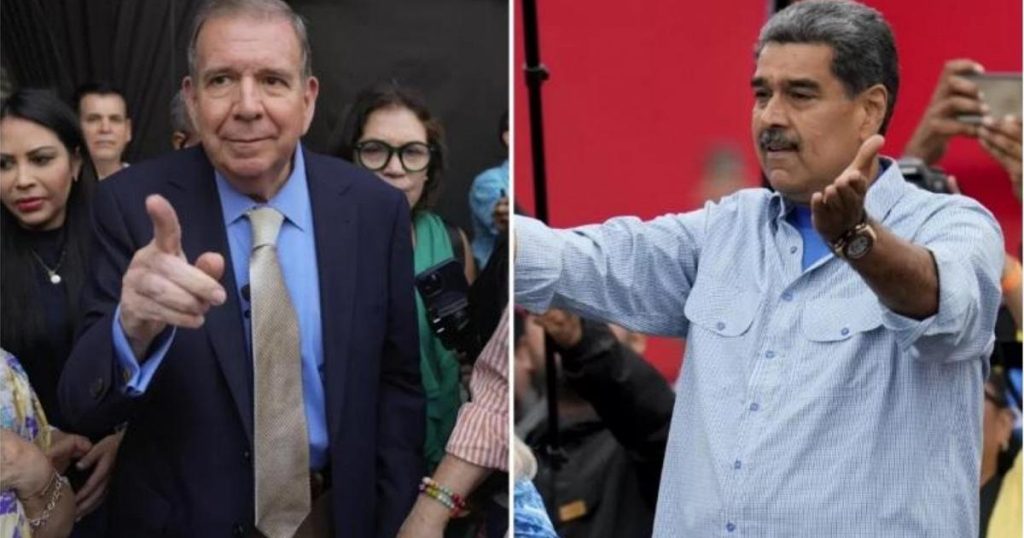In Venezuela, conflicting exit polls were released as polls closed. The first set of data came from the Hinterlaces institute, which had previously been aligned with the government and showed incumbent president Nicolas Maduro leading with 54.57% of the votes, compared to 42.82% for opposition candidate Edmundo Gonzalez Urrutia. This poll caused controversy as it was released shortly before the end of voting, which is prohibited by law. In contrast, analyst Andres Izarra, exempt from the ban on publishing polls as a resident of Germany, reported that Gonzalez Urrutia was in the lead with 58.7% of the votes, while Maduro had 37.24%. This was similar to the results of previous pre-election polls.
The opposition to Nicolas Maduro’s government immediately contested the first poll. After polls closed, the anti-Maduro camp called on voters to stay at the polling stations to monitor them and prevent any potential electoral fraud. This election, which could mark the end of the Maduro era, was highly anticipated by the Venezuelan people. Lines formed early in the morning to access polling stations, and voter turnout was the highest since 2006. Former deputy of the democratic unity platform, Delsa Solòrzano, denounced irregularities in the vote count to the electoral council. She claimed to have evidence of delays in transmitting data and publishing results, as well as instances of opposition witnesses being removed from polling stations or denied access to vote count tallies. Despite these issues, she stated that the opposition had a good idea of what was happening in the country based on the results they had.
As the vote count continued, tensions remained high in Venezuela. Supporters of both candidates were eagerly awaiting the final results, as a change in government could have significant implications for the country. Maduro’s administration had faced widespread criticism for its handling of the economy, human rights abuses, and allegations of electoral fraud. In contrast, the opposition had promised a fresh start and a new direction for Venezuela. The outcome of the election would not only shape the future of the country but also have an impact on the international community, as Venezuela’s political situation had already sparked concerns among neighboring countries and global powers.
In the midst of the uncertainty surrounding the election results, international observers expressed their concerns about the fairness of the process. Organizations such as the Organization of American States (OAS) and the United Nations (UN) called for transparency and respect for democratic principles in the electoral process. They urged all parties to abide by the rule of law and prevent violence or fraud from overshadowing the will of the Venezuelan people. The international community closely monitored the situation in Venezuela, ready to take action if necessary to ensure a peaceful transition of power and respect for human rights.
Finally, the official results of the election were released, confirming a victory for Edmundo Gonzalez Urrutia over incumbent president Nicolas Maduro. The opposition celebrated the outcome as a triumph for democracy and a fresh start for the country, while Maduro’s supporters raised concerns about the legitimacy of the results. As Venezuela prepared for a change in leadership, both sides made plans for the future, with the opposition promising a new era of stability and prosperity, and Maduro’s loyalists vowing to continue the fight for their political ideals. The election marked a turning point in Venezuelan history, setting the stage for a new chapter in the country’s political landscape.


